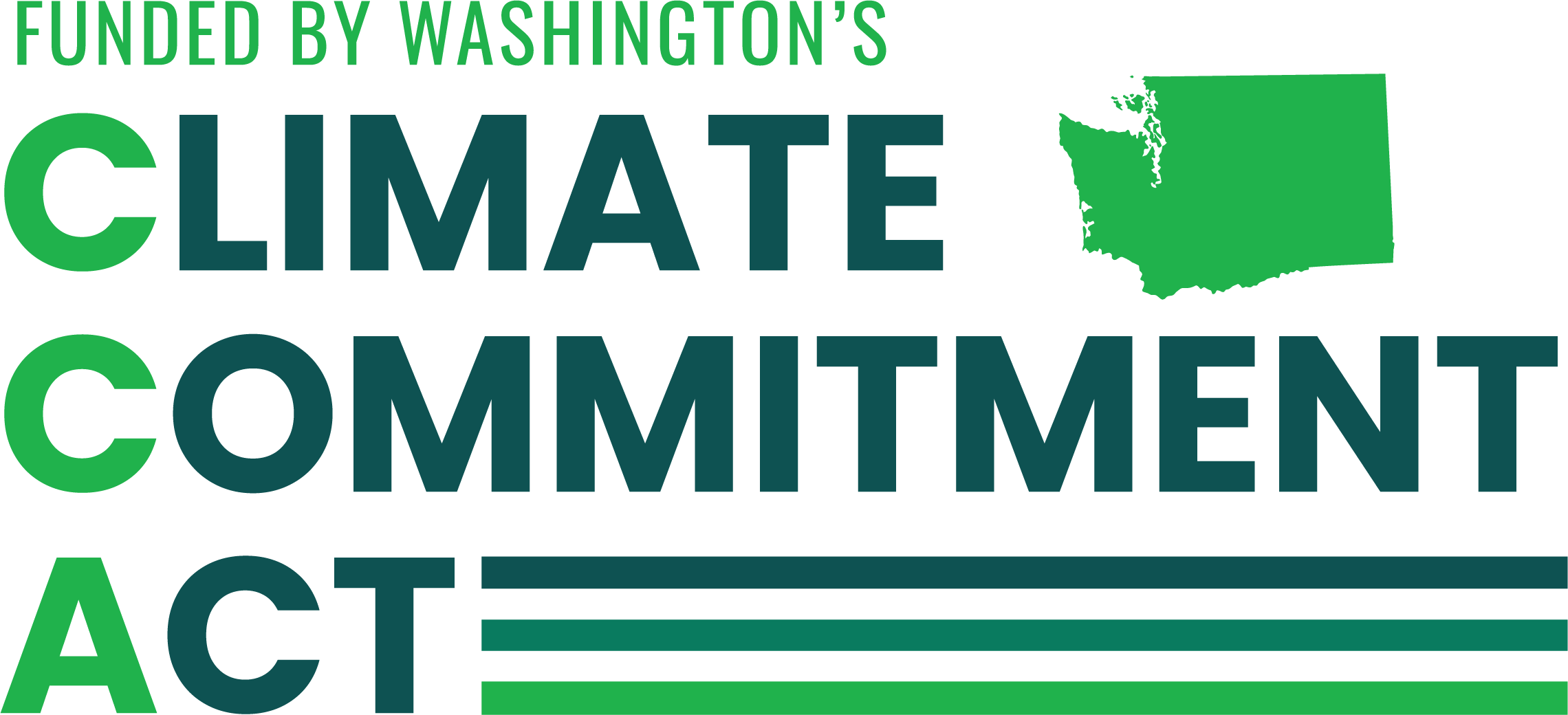Washington's Climate Resilience Strategy
First progress report now available
The first progress report on implementing the Washington State Climate Resilience Strategy has been published. Read our blog post to learn more.
The Legislature directed us to update of the strategy under the Integrated Climate Change Response Strategy (Chapter 70A.05 RCW) in partnership with nine other state agencies. The strategy addresses the greatest climate risks facing our state and proposes actions to help communities, infrastructure, and natural and working lands become more resilient to:
- Drought and reduced water availability
- Marine and coastal changes
- Flooding
- Extreme heat
- Wildfire and smoke
The Climate Resilience Strategy includes several appendices with more detailed information. These include:
- Appendix A: Washington climate projections: Summary by region
- Appendix B: Recommended new actions – Agency details
- Appendix C: A step-by-step breakdown of our engagement process
- Appendix D: Action implementation and summary table
- Appendix E: Summaries of agencies’ current climate resilience work
- Appendix F: How agencies respond to climate hazards
- Appendix G: Related state plans and strategies
- Appendix H: Measuring Resilience in Support of Effective Investment in Climate Adaptation
- Appendix I: Climate resilience indicators for Washington
Read our news release from September 2024 about the Climate Resilience Strategy.
What's next?
Ecology and our agency partners will continue working to implement the actions identified in the Strategy, as resources allow. This includes the establishment of the Interagency Climate Resilience Coordinating Council, comprised of agency directors and leaders, to coordinate climate resilience efforts and strategy implementation across the ten agencies involved in this work.
Our next progress report is due on Sept. 30, 2027 and the strategy will be updated in 2028.
What you can do
Sign up for the Climate Resilience Strategy email list to follow our progress and learn how to get involved.
Find more information
Learn more about climate action in Washington.
What does the statewide climate resilience strategy do?
The Climate Resilience Strategy:
- Prioritizes environmental justice and advances our focus on equity and reducing impacts of climate change on overburdened communities.
- Identifies ways the state can aid climate-response activities by local and tribal governments and others.
- Brings together current climate change response work across multiple agencies and improves the efficiency and coordination of state efforts, including federal funding opportunities.
- Identifies outcomes and actions that address the highest climate change risks and vulnerabilities, including identifying clear agency leads and metrics that enable reporting and transparency on our progress.
How did we develop the strategy?
To develop the strategy, we:
- Convened an interagency team of 10 state agencies to assist in developing the strategy.
- Sought technical and scientific advice from the University of Washington Climate Impacts Group. This group will also serve as a clearinghouse for state agencies on climate impact data and information, including making scientific information available online in a central resource.
- Engaged a wide array of interested groups in the process.
- Incorporated criteria for prioritizing actions and met other requirements for the strategy.
Contact information
Jennifer Hennessey
Special Assistant to the Director
jennifer.hennessey@ecy.wa.gov
360-972-5887
Jimmy Kralj
Climate Resilience Strategy Planner
jimmy.kralj@ecy.wa.gov
564-233-1961
Sign up for our email list to stay updated on our progress!


